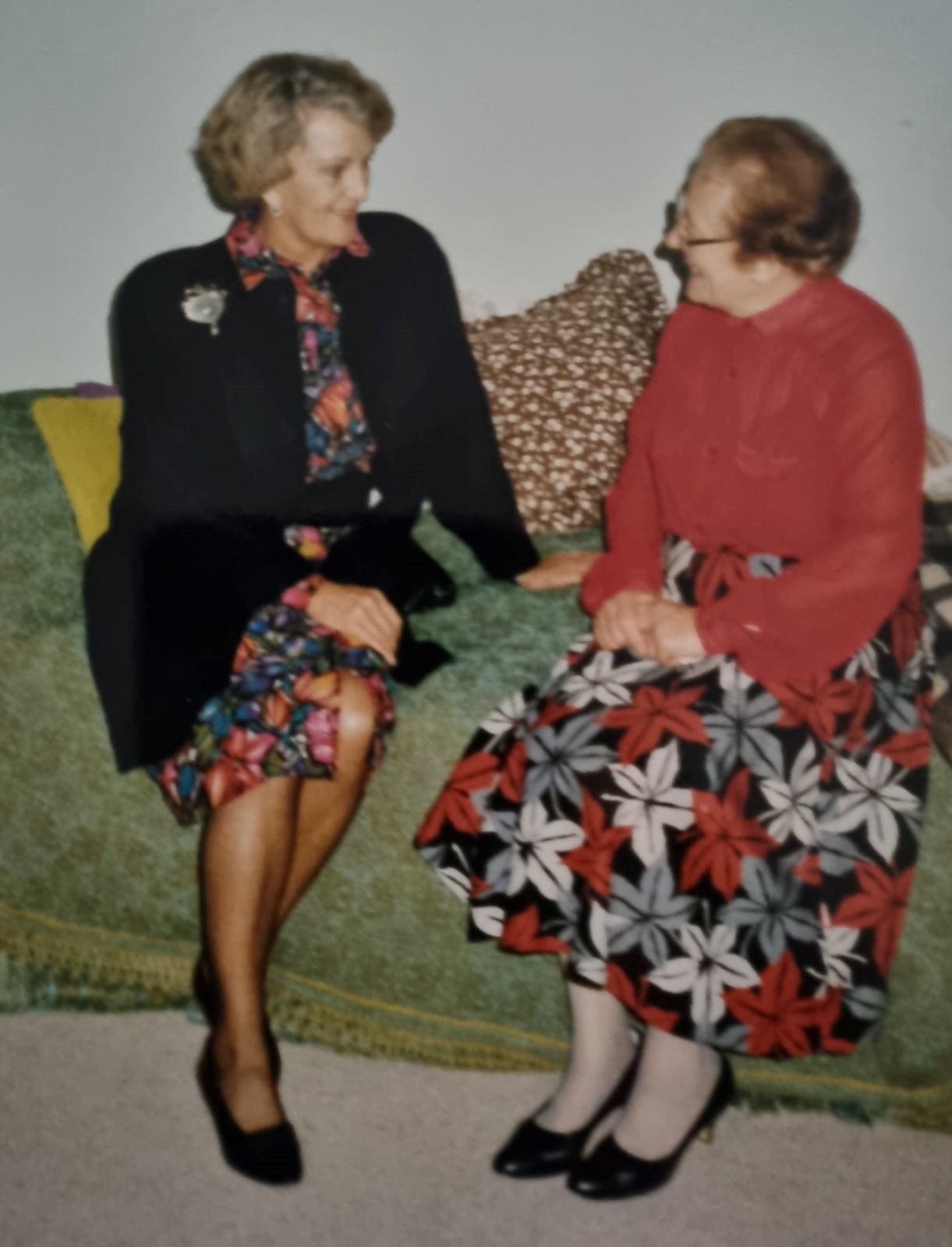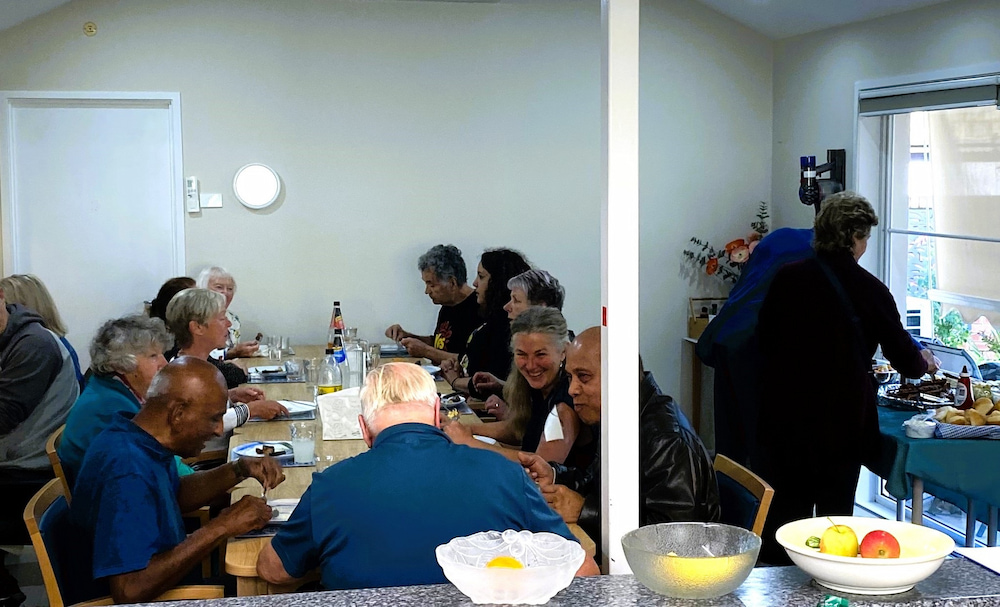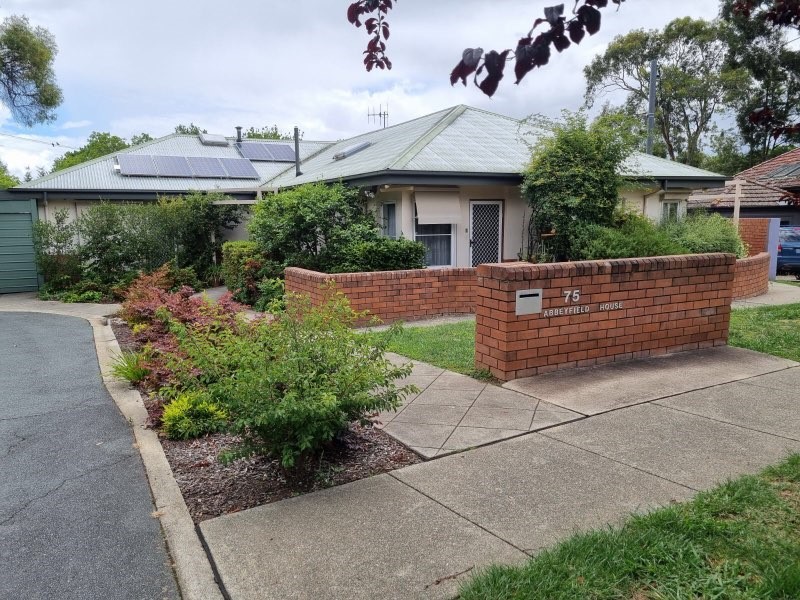Since 1989, the Abbeyfield house at Ainslie, “a share house for older people”, has provided long-term accommodation for seniors, alleviating social isolation and helping residents to maintain independence in a semi-supportive environment with privacy and security, operations manager Nancy Trajcevski says.
Abbeyfield is a not-for-profit community housing provider. The model began in the UK in the 1950s.
After the war, Richard Carr-Gomm OBE, an army major who became Britain’s first male home help, realised that there was little housing for ex-servicemen, and that many of his clients were lonely. He used part of his army pension to buy a house in East London – the first of 100 across the UK and 400 worldwide, including in Canada, New Zealand, South Africa, Belgium, and Poland.
Judy Dunster brought the movement to Australia, and opened the first house in 1986, in Melbourne.
Three years later, Hazel Hawke, wife of the prime minister, opened the Ainslie house, purpose-built as a joint venture between the ACT Housing Trust and Abbeyfield ACT.

Two other houses in Curtin and Garran provide assisted independent living for people with mild intellectual disabilities.
The “supported accommodation” model allows older or mildly disabled people to remain independent while minimising problems that vulnerable people living alone can have, Mrs Trajcewski said.
Each of the 10 Ainslie residents has their own bedsit and ensuite bathroom; they share the living areas, dining room, laundry, and garden. Every day, the residents gather for meals and conversation.
“One of our main focuses is companionship: sitting around the dining-room table, having a chat in the lounge-room, watching [the quiz show] Letters and Numbers,” Mrs Trajcevski said.
“It’s about being connected within their own community, but also having the independence to do what they want, when they want. Some of our residents still work or volunteer; some of them still visit their clubs and other organisations. So it’s like living in your own home, except you’re sharing with other people.”
A housekeeper cooks lunch and dinner, and cleans the common areas of the house, while on weekends, a cook serves two-course dinners.
“Older people who live by themselves tend not to cook for themselves or have very nutritious meals,” Mrs Trajcevski said.
Earlier this month, the Ainslie house held a special dining-in event to inaugurate its new dining room furniture: locally sourced timber tables and upholstered timber chairs, whose “at home” look and feel has transformed the room, Mrs Trajcewski said.
“We’ve been slowly upgrading furniture and the fixture and the fittings,” Mrs Trajcewski said. The dining room furniture was upgraded to reflect lounge room furniture installed a couple of years ago. “We wanted it to be cohesive and matching; obviously, given we’re a not-for-profit, it sometimes takes a long time to actually get the funds to be able to do that.”

Residents love living at Abbeyfield, Mrs Trajcevski said: “They leave and then they come back.” They appreciate the support and independence the facility provides.
“Good housekeeper, good people, and you can’t beat it,” the Annual Report quotes one resident. Another resident said: “I have my own independence, but I have support at the house if I need it. Our housekeepers are all great cooks, and keep us all well fed. We sometimes have card nights and game nights with some residents and housekeepers, which is always fun.”
The house fee (rent) is based on 70 per cent of the pension, plus the government energy supplement and rent assistance. The house fee also includes utilities and food. Residents do not need to clean the common areas or garden; they only need to look after their own room and ensuite.
Abbeyfield currently has both vacancies in all three Canberra houses. If a person over the age of 55 is looking for somewhere safe to live and still maintain their independence, they can contact Abbeyfield on 394198222.
The applicant can do a two-week trial in a guest room “to see what it’s like, because moving into a room with nine other residents is very different to living on your own!” Mrs Trajcevski said. After that fortnight, the applicant, residents, and housekeeper provide feedback. If successful, and they are likely to fit in with the other residents, they move in for a three-month familiarisation period.
People with a My Aged Care package who need extra support to help clean their room, make sure they take their medication, or do their laundry can get those supports to come to the house. Abbeyfield does not provide them.
Residents of the two disability accommodation houses will need to be independent, rather than Abbeyfield providing services for them. Abbeyfield is not a supported independent living (SIL) facility.



